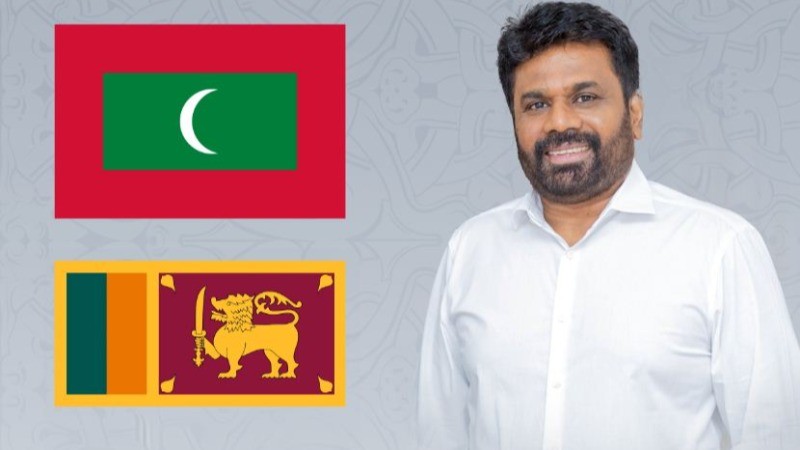
Anura Kumara Dissanayake, a left-leaning politician, has been elected as Sri Lanka's next president following his victory in the country’s first election since its economic collapse in 2022. The 55-year-old emerged as the winner, defeating opposition leader Sajith Premadasa in a historic second round of counting. The election also saw outgoing president Ranil Wikremesinghe trailing behind in third place.
This marks a significant turnaround for Dissanayake, who garnered only 3% of the votes in the 2019 election. As the candidate of the National People's Power (NPP) alliance, he has gained increasing popularity due to his anti-corruption stance and policies that focus on supporting the poor, especially after Sri Lanka's severe economic crisis.
Dissanayake now faces the immense task of leading a nation still reeling from the effects of this crisis. The people of Sri Lanka are eager for change, and many hope Dissanayake will deliver it.
Who is Anura Kumara Dissanayake?
Born on November 24, 1968, in Galewela, central Sri Lanka, Dissanayake grew up in a middle-class family. He received a public school education and holds a degree in physics. His political journey began as a student, around the time the Indo-Sri Lanka Agreement was signed in 1987, a period that led to one of Sri Lanka's most violent chapters.
Dissanayake became closely associated with the Janatha Vimukti Peramuna (JVP), a Marxist political party, which led an armed revolt against the Sri Lankan government between 1987 and 1989. This period of conflict saw numerous raids, assassinations, and attacks, resulting in thousands of deaths. By 1997, Dissanayake had risen to the JVP’s central committee and became its leader in 2008. He has since expressed regret over the violence of that period, acknowledging that many actions taken during the conflict were wrong.
Today, the JVP holds three seats in Sri Lanka’s parliament and is part of the NPP coalition that Dissanayake leads.
A Leader for Change
During his presidential campaign, Dissanayake addressed other critical moments in Sri Lanka's history, including the 2019 Easter Sunday bombings. On April 21, 2019, a series of coordinated attacks on churches and hotels in Colombo claimed at least 290 lives, making it the deadliest attack in the nation's history. Despite the passage of time, investigations into the bombings have made little progress, with some accusing the previous government of hindering the process.
Dissanayake has vowed to conduct a thorough investigation into the attacks if elected, suggesting that the authorities may have avoided it due to fear of exposing their own involvement. He has also criticized the political establishment for failing to deliver on promises, ranging from ending corruption to reducing Sri Lanka's debt burden.
He believes the country's desire for new leadership is clear and positions himself as the one to provide that change.
Tags: Anura Kumara Dissanayake, Sri Lanka politics, new president, anti-corruption, National People's Power, JVP, Sri Lanka election, Easter bombings investigation, Sri Lanka economic crisis
Sri Lanka's New President: Anura Kumara Dissanayake’s Journey to Leadership
Anura Kumara Dissanayake, a left-leaning politician, has been elected as Sri Lanka's next president following his victory in the country’s first election since its economic collapse in 2022. The 55-year-old emerged as the winner, defeating opposition leader Sajith Premadasa in a historic second round of counting. The election also saw outgoing president Ranil Wikremesinghe trailing behind in third place.
This marks a significant turnaround for Dissanayake, who garnered only 3% of the votes in the 2019 election. As the candidate of the National People's Power (NPP) alliance, he has gained increasing popularity due to his anti-corruption stance and policies that focus on supporting the poor, especially after Sri Lanka's severe economic crisis.
Dissanayake now faces the immense task of leading a nation still reeling from the effects of this crisis. The people of Sri Lanka are eager for change, and many hope Dissanayake will deliver it.
Who is Anura Kumara Dissanayake?
Born on November 24, 1968, in Galewela, central Sri Lanka, Dissanayake grew up in a middle-class family. He received a public school education and holds a degree in physics. His political journey began as a student, around the time the Indo-Sri Lanka Agreement was signed in 1987, a period that led to one of Sri Lanka's most violent chapters.
Dissanayake became closely associated with the Janatha Vimukti Peramuna (JVP), a Marxist political party, which led an armed revolt against the Sri Lankan government between 1987 and 1989. This period of conflict saw numerous raids, assassinations, and attacks, resulting in thousands of deaths. By 1997, Dissanayake had risen to the JVP’s central committee and became its leader in 2008. He has since expressed regret over the violence of that period, acknowledging that many actions taken during the conflict were wrong.
Today, the JVP holds three seats in Sri Lanka’s parliament and is part of the NPP coalition that Dissanayake leads.
A Leader for Change
During his presidential campaign, Dissanayake addressed other critical moments in Sri Lanka's history, including the 2019 Easter Sunday bombings. On April 21, 2019, a series of coordinated attacks on churches and hotels in Colombo claimed at least 290 lives, making it the deadliest attack in the nation's history. Despite the passage of time, investigations into the bombings have made little progress, with some accusing the previous government of hindering the process.
Dissanayake has vowed to conduct a thorough investigation into the attacks if elected, suggesting that the authorities may have avoided it due to fear of exposing their own involvement. He has also criticized the political establishment for failing to deliver on promises, ranging from ending corruption to reducing Sri Lanka's debt burden.
He believes the country's desire for new leadership is clear and positions himself as the one to provide that change.